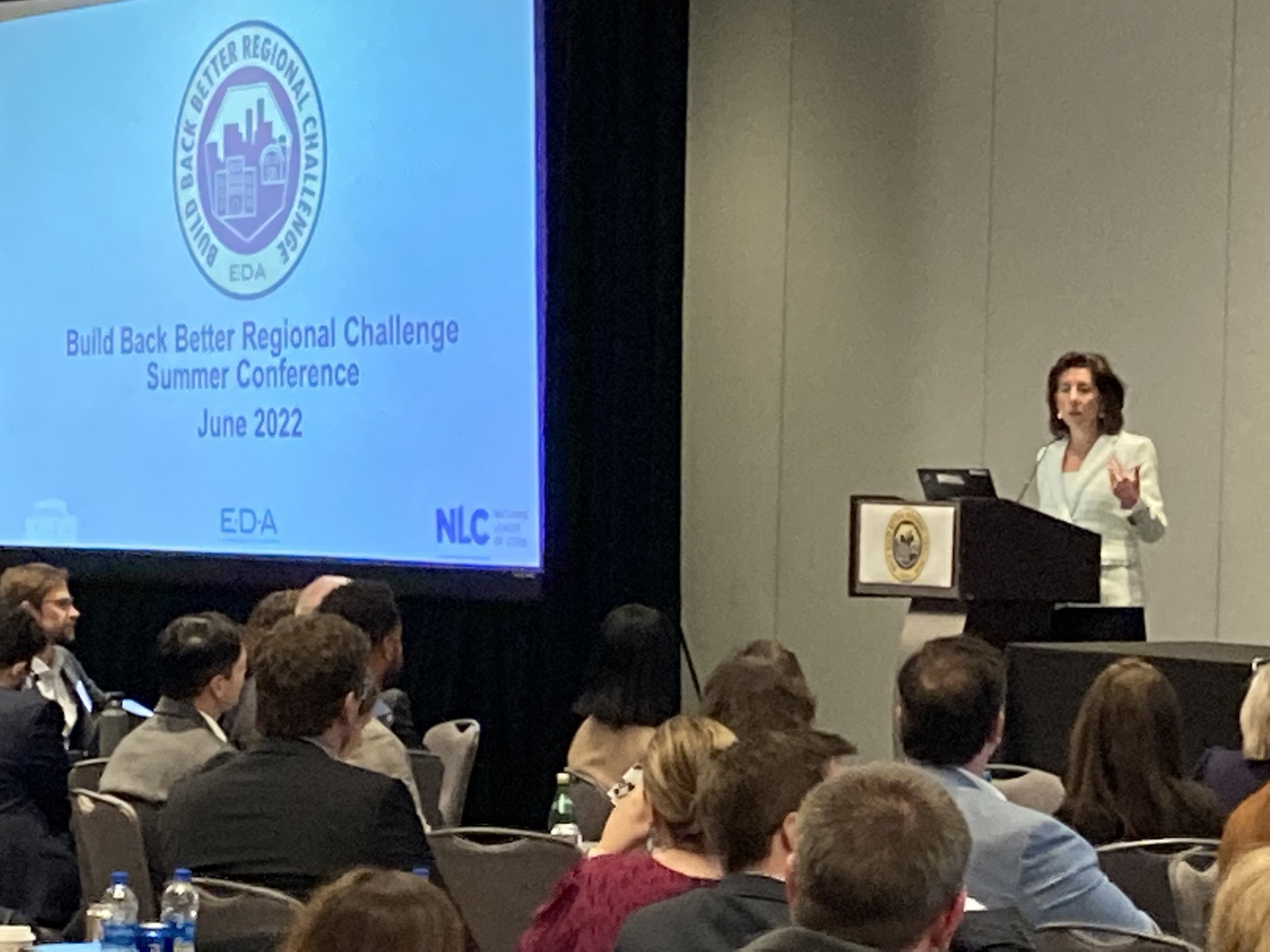Sixty Regions
Imagining a Prosperous, Inclusive Economic Future
By Jon Schnur
August 4, 2022
As our world navigates unprecedented economic change, the reverberations of a lingering pandemic, a renewed focus on racial justice, and the resurgence of a contest between democracy and tyranny, the United States needs to invest in every community across our country – now, arguably, more than ever.
In many ways, we are in the midst of a split-screen moment. On one side of the screen, it’s a moment of high anxiety and existential doubt for far too many people and communities across our nation.
On the other side of the screen, however, there is a sense of energy and progress emerging and rolling across our nation. It is fueled by the potential and desire to build – community by community, region by region – a new wave of prosperity and vitality atop of a solid foundation of innovation, good jobs, and more equitable opportunity.
It is this reality that my colleagues and I at the nonprofit organization America Achieves are seeing and supporting in communities across this country. We do so by incubating and championing large-scale initiatives, and shaping and influencing the development of large-scale policy, across areas like education, workforce development and equitable, economic recovery. And we do so with the goal of improving opportunities and outcomes for all Americans in the places where they live and work.
A major part of our work this past year has been the incredible opportunity to be a part of a technical assistance (TA) coalition, which has provided support to the 60 Regional finalists in the Economic Development Administration’s (EDA’s) $1 billion Build Back Better Regional Challenge (BBBRC). Last December, these 60 regions were named “finalists” from a pool of 529 applicants. Since then, these teams have built broad-based, creative and inclusive coalitions, composed of local, regional and state officials; businesses; colleges and universities; and nonprofit and entrepreneurial organizations, among others. These coalitions, like America Achieves, have focused their efforts on working with and supporting historically excluded communities, including rural areas; communities of color and indigenous communities; lower income communities; and those that have experienced significant distress in rural and urban geographies. People in these communities are too often the first and hardest hit by economic shifts or public health crises.
Through an opportunity provided by the U.S. Department of Commerce and the EDA, we – along with National League of Cities, the Nowak Lab, the Federation of American Scientists, and other partners and funders – have had a front-row seat and a supporting role as each of the regional clusters has begun the process of reimagining their local economies and building sustainable markets in certain industries grounded in innovation and good jobs. We saw 60 regions as diverse as our country build broad coalitions, anchor their efforts in regional assets that link to economically competitive sectors and center their approaches on ensuring historically excluded communities would benefit. This is not our grandparents’ economic development. Across all of these inspiring regions, we saw teams come together in new ways, leveraging regional assets and requiring a degree of openness, coordination, strategic planning, and alignment of otherwise disparate projects.
We saw regions seeking to pivot away from legacy and traditional industries to advanced and emerging sectors, while fostering small and minority-owned businesses and entrepreneurs. Others sought to transition from carbon-based extraction to next-generation green economies with community colleges and K-12 partners at the table. And we saw regions that sought to develop whole new industries, such as advanced mobility or agricultural technology, by connecting university research with rural and native communities.
U.S. Department of Commerce Secretary Gina Raimondo addresses the room at the Build Back Better Regional Challenge Summer Conference
Washington, DC, June 2022 (Photo credit: America Achieves)
In the coming weeks, the EDA will award 20 to 30 of the 60 finalists implementation grants ranging from $25 to $100 million. Regardless of who is ultimately selected for the awards, we know, as Secretary Raimando has said, that all of these finalists are winners. They are building pathways to prosperity – jobs, opportunity and hope – that are truly extraordinary. Our goal is to work with our partners, including many of you, to continue to champion the finalists’ work and bring resources to bear so that all 60 visions can become a reality over time, charting a roadmap for bold and courageous inclusive economic growth for others to follow.
In a series of blog posts, my colleagues, partners, and I will share some of the inspiration and insights from what we have observed and learned, especially from the finalists themselves, as we continue to work with these visionary, practical leaders and builders of a new wave of local economic innovation and good jobs.
Our hope is that these reflections will prove helpful to those who are striving for economic reinvention in their communities and others seeking to learn from them. These include governors, mayors, county executives and other public officials; economic development professionals and local organizations across the country; other federal, state, and regional government agencies seeking to create or align public funding to these initiatives; and philanthropists, foundations and private investors contemplating the next generation of investments that will not only build competitive economic growth, but also equitable economic opportunities for communities nationwide.
As you read this post, and others that follow, please send me your questions, comments, and ideas. I encourage you to contact me at: catalyzeblog@americaachieves.org. We look forward to providing you with some food for thought that might sustain you – as well as helping make it possible for many more communities and people to experience this well-founded hope for the future.
Jon Schnur is the Chief Executive Officer of America Achieves


